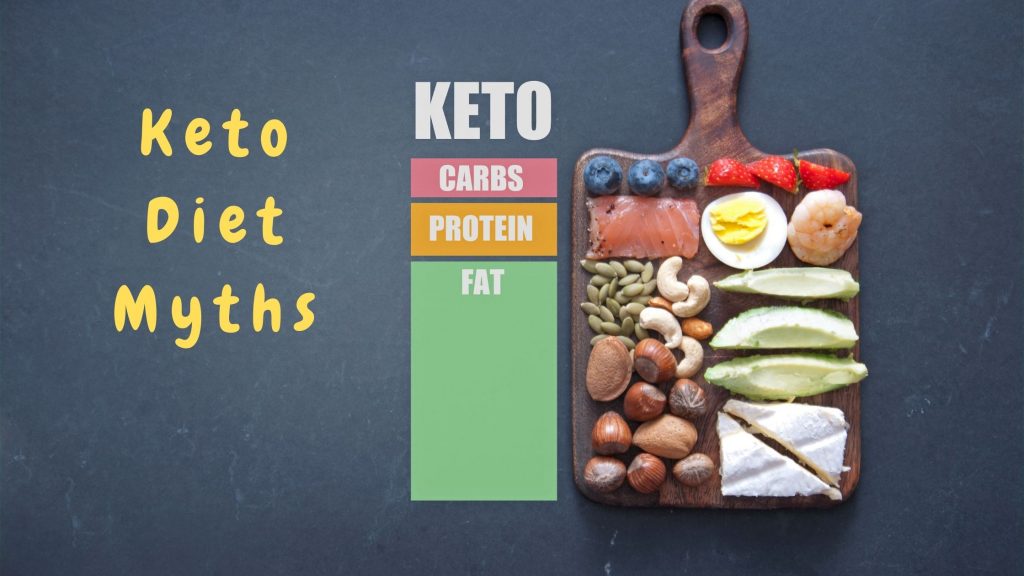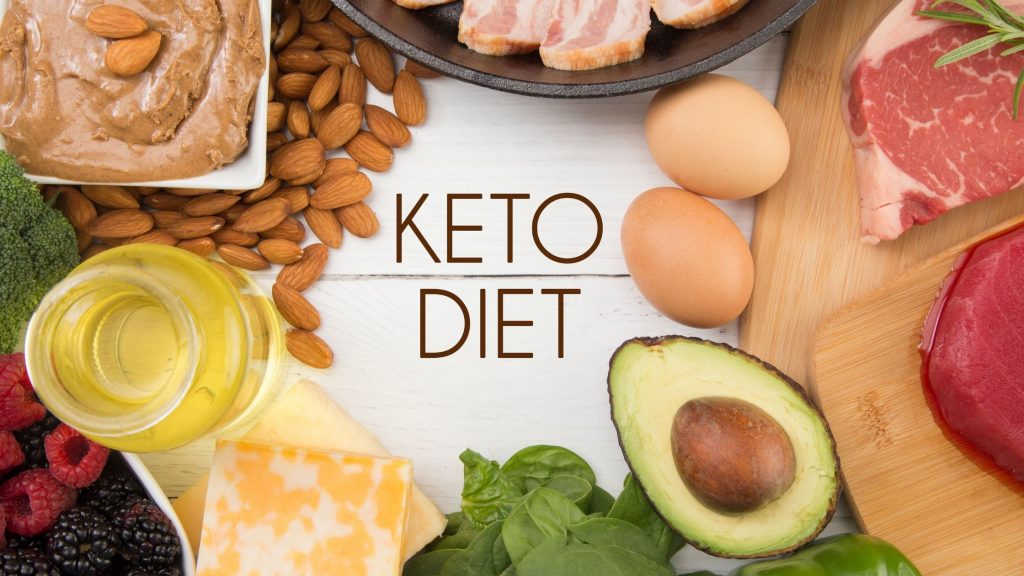The ketogenic diet or the keto diet is the latest trending diet. Influenced by various celebrity artists and wellness influencers, who keep raving about this diet, more and more people are embracing this diet. People adopt this diet for many reasons, such as weight loss, reducing blood sugar and insulin, and even as a preventative measure.
Despite the hype surrounding the diet, people are still unsure of the facts associated with the ketogenic diet. There is a lot of misinformation about the keto diet.
Some claim that it’s an ideal diet, while others consider it unsustainable and a potentially harmful fad diet. It’s hard to separate fact from the fiction.
What is a keto diet?
In essence, the keto diet is a diet high in fats and low in carbohydrates that stimulates ketosis—a state in which the body uses fat as fuel.
The body produces ketones, which become the body’s main source of energy during the keto diet. In the ketogenic state, your body burns fats allowing for weight loss and several other health benefits.
But to get to that state, it’s important to understand what is true and what is not. So, here we have tried to debunk the 10 common myths associated with the keto diet.
10 Keto Diet Myths
Myth 1 - Keto diet is meant only for weight loss
Fact – There is no doubt that the keto diet is excellent for weight loss but the truth is that the benefits of this diet extend far beyond weight loss.
This diet helps reduce blood sugar, lower blood pressure, enhance cognitive functions and improve gut health. It regulates hormone production and also reduces the risk of certain diseases like cancer.
Myth 2 - You will always be low on energy
Fact – You may experience tiredness and fatigue when you transition from your regular diet to the keto diet; you may experience ‘keto flu’ during this transition period. But remember that this is just a passing phase. Once your body enters ketosis, you will start feeling more energetic. Many find their energy and concentration actually get a boost when they are in ketosis.
Myth 3 - Keto is a high-fat, high-protein diet
Fact – A keto diet is high fat but certainly not high in proteins. If you consume excess protein, your body converts it into glucose, which spikes your blood sugar and throws your body out of ketosis. So, it is crucial to maintain your macros. Although the macros vary from person to person, depending on weight goals and training goals, generally, a ketogenic diet advocates 70-80% fat, 5-10% carbohydrate, and 10-20% protein from total daily calories.
Myth 4 – You can eat all types of fat
Fact – A keto diet is a high-fat, very low-carb diet that advocates that you get 75-80% of daily calorie intake from fats.
But this does not mean that you can gorge on pastries, cookies, and other ultra-processed snacks. Some of these foods contain saturated fats and trans fats; it is best to stay away from them.
Healthy fats are encouraged for the keto diet – you can have healthy fats by eating fatty fish, butter, Greek yogurt, olives, cold-pressed olive oil, avocados, etc.
Myth 5 – You can’t eat veggies and fruits
Fact – Many people think that fruits and vegetables can’t be consumed on keto as they contain carbohydrates.
However, veggies and fruits are a great addition to a keto diet as they provide antioxidants, fibers, and micronutrients to make the keto diet whole and balanced.
Asparagus, avocado, cauliflower, zucchini, lettuce, kale, raspberries, blackberries, strawberries, and cantaloupes are some of the keto-friendly veggies and fruits.
Myth 6 – Everyone has the same carb needs.
Fact – The keto diet is a low-carb diet which means you have to drastically cut down your daily carb intake.
On average, the daily intake of carb is 200- 300 grams per day, but keto reduces it to 20- 50 grams only. But everyone can’t handle such a drastic cut in carbs.
It is advisable not to cut carbs drastically; go slow and figure out what works best for you.
Each individual is different, and what works for you may not work for the other. A dietician would help you to understand how many carbs your body actually needs.
Myth 7 - You can’t exercise
Fact – You don’t have to stop exercising if you’re on keto.
Exercise is beneficial for everyone, and if you want to derive maximum benefits, you should exercise regularly.
Initially, you may feel tired and not energized enough to workout, but this tiredness goes away as your body adjusts to ketosis.
Your body needs the energy from carbs when you exercise; you can up your carb intake on the days when you exercise.
Make sure you’re eating enough and allow enough time for recovery.
Myth 8 - You can occasionally cheat
Fact – Although sticking to a diet day in and day out is difficult, strict adherence is the key to success.
Remember that giving into temptation even for a small number of fries and a glazed donut can cause you to transition out of ketosis.
You might lose all the gains you had previously made, and you might have to start all over again. So, avoid cheat days and stick to your diet.
Myth 9 - You can’t drink alcohol
Fact – You can drink alcohol in moderate amounts when on a keto diet. Beer and wine are generally high in carbs, so you should avoid them.
Pure forms of alcohol like vodka, whisky, rum, gin, and tequila are tally free of carbs, so you can have them. Watch out for your cocktails – they may contain some mixers such as sodas, juices, and energy drinks high in carbs.
Myth 10 – It is a long term/short term diet
Fact – It’s not always possible to stick to a diet for years and years. Your needs and goals dictate the length of the diet. If you can achieve your goal (e.g., of losing weight) say in 3-4 months, you can revert to your normal diet for a few weeks. Of course, you have to be careful about your normal diet to not put on weight again.
There’s no specific time limit to the keto diet; you can choose to safely cycle in and out of ketosis for as long as you like, depending on how you feel.
It’s about finding what works best for you, keeping in mind your lifestyle and goals. However, you should always consult your physician or dietitian.
Conclusion
The high-fat, very-low-carb keto diet has gained immense popularity in recent years.
Several celebrities and wellness experts have endorsed this diet as a great way to lose weight and for overall health benefits.
However, there is a lot of misinformation and confusion about this diet and how to get the most out of it.
We’ve tried to set the record straight by debunking some common keto diet myths. Hope it helps you to decide whether it is suitable for you or not and to optimize your benefits.


